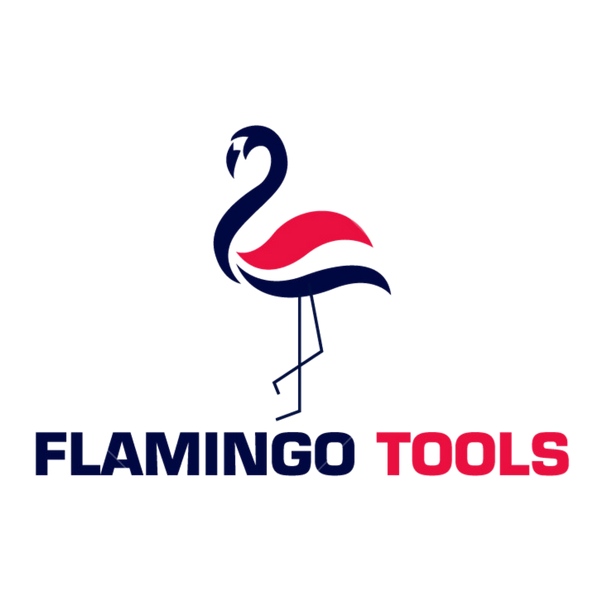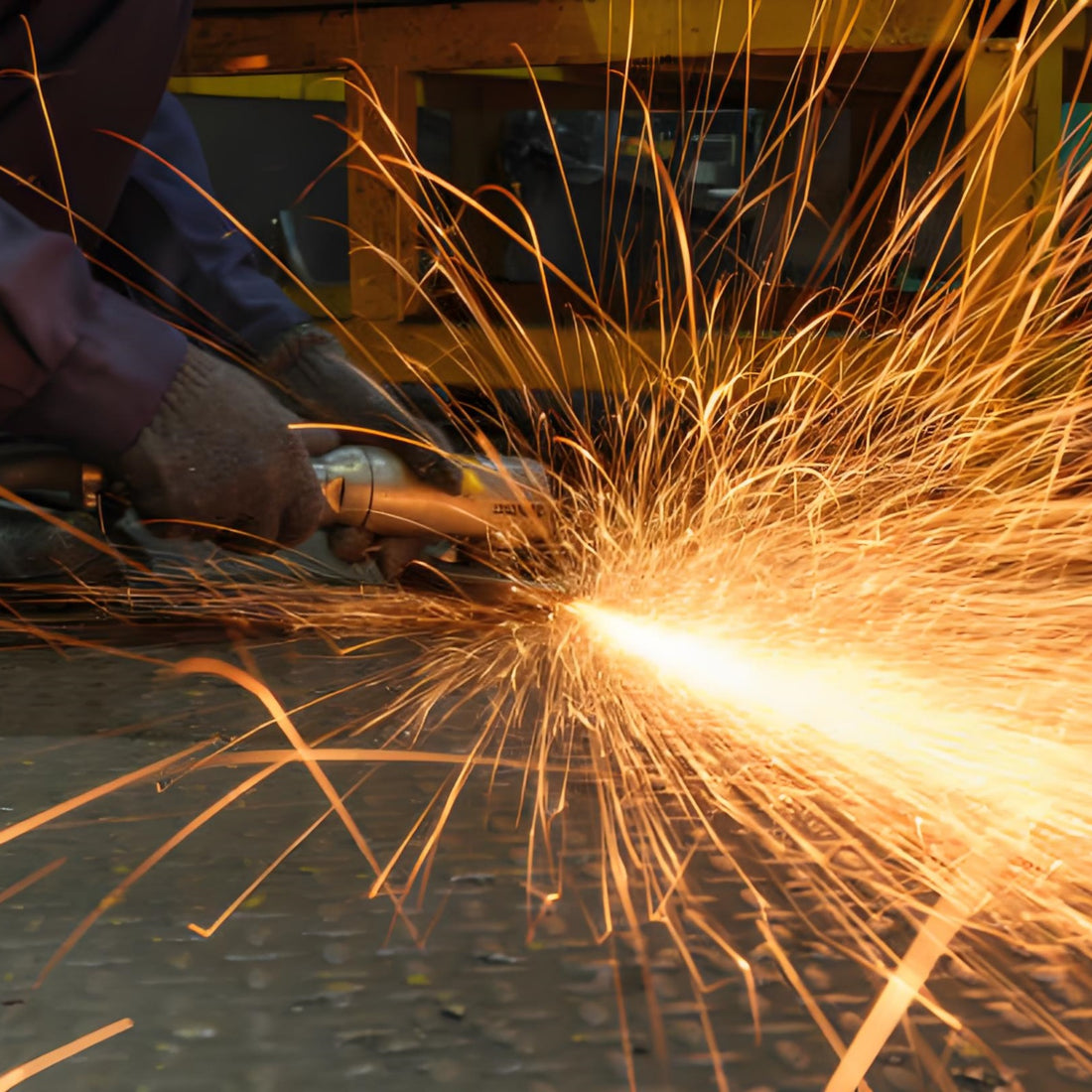
In metal fabrication and other applications that require cutting, choosing the right size and thickness of cut-off wheel is crucial. 3/8 inch and 1/4 inch cut-off wheels are two common thicknesses, each with their advantages and disadvantages. This article will take a detailed look at the features of both wheels, application scenarios, and performance comparison, helping you make the best choice.
1. Basic principles of cutting wheels
A cutting wheel is a disc mounted on tools such as angle grinders, used to cut metals, plastics, and other materials. The thickness of the cutting wheel directly affects cutting speed, accuracy, and material waste. Thinner wheels typically have a faster cutting speed and higher accuracy, but are less durable. Thicker wheels are more durable but have a slower cutting speed and lower accuracy.
2. Features of 3/8 inch cutting wheels
Advantages:
- Durability: 3/8 inch cut-off wheels are more durable than 1/4 inch ones, suitable for long time use, especially when cutting hard materials.
- Stability: Thicker wheels do not bend easily during cutting, providing a more stable cutting experience.
- Application scenarios: Suitable for industrial scenarios that require a lot of cutting, such as construction sites and heavy metal processing factories.
Disadvantages:
- Cutting speed: Because thicker wheels generate more friction, the cutting speed is slower.
- Material Waste: Thicker wheels create a wider cut, leading to more material waste.
3. Features of 1/4 inch cutting wheels
Advantages:
- Cutting Speed: 1/4 inch wheels have a faster cutting speed due to their thinness, suitable for fast cutting tasks.
- Precision: Thinner wheels can provide higher cutting precision, suitable for tasks requiring fine cuts.
- Material Waste: Narrower cuts reduce material waste, making them ideal for fine processing.
Disadvantages:
- Durability: Thinner cutting wheels are more easily damaged with prolonged use and when cutting hard materials, they are not as durable as 3/8 inch wheels.
- Stability: Under high loads, thinner wheels bend more easily, which can affect cut quality.
4. Performance comparison
The following table compares the key performance parameters of 3/8 inch and 1/4 inch cut-off wheels:
| Feature | 3/8 inch cutting wheel | 1/4 inch cutting wheel |
|---|---|---|
| Durability | High | Average |
| Cutting speed | Average | High |
| Cutting precision | Average | High |
| Waste of material | High | Low |
| Stability | High | Average |
| Application scenarios | Heavy industrial use | Fine processing, fast cutting |
5. Analysis of specific application scenarios
Heavy Industrial Use: On construction sites or heavy metal processing factories where thick materials need to be cut for long periods, the durability and stability of 3/8 inch cut-off wheels make them the ideal choice. Although the cutting speed is slower, their high durability reduces the need to change wheels frequently, improving work efficiency.
Fine Processing & Fast Cutting: For tasks requiring high precision and fast cutting, such as car repairs and light metal processing, 1/4 inch cutting wheels are the best choice. Their thinness not only increases cutting speed and accuracy, but also reduces material waste, making them ideal for jobs requiring precision.
6. User experience and feedback
In terms of user feedback, choosing the right cutting wheel thickness also depends on personal operating habits and specific needs. Some users find that thicker wheels offer better control and a sense of security, while others prefer the speed and precision of thinner wheels.
Below are some of the comments from users:
Comments on 3/8 inch cut-off wheels:
- “When cutting thick steel plates, 3/8 inch wheels work very well, have excellent durability and do not need to be replaced frequently.”
- “Although the cutting speed is not as fast as the 1/4 inch, I prefer the stability and reliability of the 3/8 inch wheels.”
Comments on 1/4 inch cut-off wheels:
- “1/4 inch wheels have an extremely fast cutting speed, suitable for completing tasks quickly.”
- “Although they are not as durable as the 3/8 inch ones, I am very satisfied with the cutting precision they offer, especially for fine work.”
7. Recommended models and parameters
Depending on different needs, here are some recommended cutting wheel models and their parameters:
Recommended 3/8 inch cut-off wheels:
- Weiler Tiger Zirc 3/8 inch: Suitable for steel and stainless steel, they offer excellent durability and cutting performance.
- Norton BlueFire 3/8 inch: Economical, suitable for most metal cutting applications.
Recommended 1/4 inch cut-off wheels:
- Benchmark Abrasives Ultra Thin 1/4 inch: Suitable for fine cutting tasks, they offer a fast and precise cutting experience.
- DeWalt DW8424 1/4 inch: Efficient cutting, suitable for various metals and alloy materials.
Data comparison table
The following table compares the recommended cutting wheel models:
| Model | Thickness (inches) | Applicable material | Cutting speed | Durability | Application scenarios |
|---|---|---|---|---|---|
| Weiler Tiger Zircon 3/8 inch | 3/8 | Steel, stainless steel | Average | High | Heavy industrial use |
| Norton BlueFire 3/8 inch | 3/8 | Various metals | Average | High | Economical, wide application |
| Benchmark Abrasives Ultra Thin 1/4 inch | 1/4 | Various metals, alloys | High | Average | Fine processing, fast cutting |
| DeWalt DW8424 1/4 inch | 1/4 | Various metals, alloys | High | Average | Efficient cutting, multiple uses |
Conclusion
Choosing 3/8 inch or 1/4 inch cut-off wheels depends on your specific needs. If your work requires a lot of cutting and you care more about durability and stability, then 3/8 inch cut-off wheels are the better choice. On the other hand, if you need fast and precise cuts, 1/4 inch cut-off wheels will be more suitable.
I hope the above information is useful to you. If you want to know more details about cutting discs, go to https://flamingoherramientas.com/ to obtain it.

